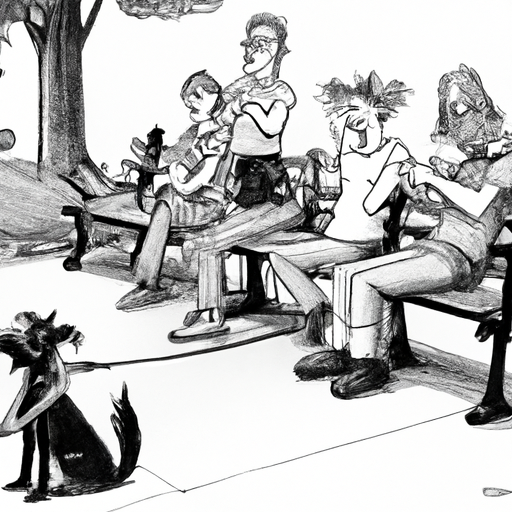Introduction
You love your furry friend, but there’s this one thing that’s been bothering you: why does your dog bark at everyone? As a caregiver, it’s essential to understand your pet’s behavior and what triggers it. This article aims to give a detailed, insightful look into the reasons behind your dog’s barking and provide solutions to help you manage it.
Understanding the Dog’s Barking
First, it’s crucial to acknowledge that barking is a form of communication for dogs. They bark to express a variety of emotions, like excitement, fear, or even as a warning. However, if your dog barks excessively at people, it could be due to several reasons:
- Territorial/Protective: Dogs are naturally protective and territorial. If they perceive someone as a threat, they might bark to scare them away.
- Fear: Fear or anxiety could also trigger excessive barking. Strangers or unfamiliar environments can cause fear responses in dogs.
- Loneliness/Boredom: Dogs are social animals. If they are left alone for extended periods, they might bark out of boredom or loneliness.
- Attention-seeking: Sometimes, dogs bark simply to grab your attention.
How to Identify the Trigger
Identifying the trigger of your dog’s barking is a crucial step towards curbing the behavior. Here are some pointers to help you identify the possible trigger:
- Observe when your dog barks the most. Is it when a particular person approaches, during specific times of the day, or in certain locations?
- Notice the body language. A scared dog will have its tail tucked, while an excited dog might wag its tail extensively.
- Try to understand the type of bark. A low pitch bark often indicates a threat, while high pitch barks could mean excitement or fear.
Training Your Dog to Stop Barking
Training your dog to stop barking at everyone might take some time and patience, but it’s certainly achievable. Here are some strategies that could help:
- Ignore the barking: If your dog barks for attention, ignoring them until they stop can be effective.
- Distract and redirect: Use your dog’s favorite toy or treat to distract them when they start barking.
- Positive reinforcement: Reward your dog when they stop barking on command. This can help them associate quiet behavior with positive outcomes.
- Professional help: If the barking is driven by fear or anxiety, or if it’s causing significant distress, consider seeking help from a professional dog trainer or behaviorist.
The Role of Socialization in Barking Behavior
Socialization plays a pivotal role in a dog’s behavior. Exposing your dog to different people, environments, and situations can reduce fear and anxiety, ultimately leading to less barking. Start socializing your dog at a young age and continue to introduce them to new experiences as they grow.
Managing Your Dog’s Environment
Managing your dog’s environment can also help reduce unnecessary barking. For instance, if your dog barks at people passing by the window, consider closing the blinds or moving your dog to another room. Providing your dog with regular exercise and mental stimulation can also help reduce boredom-induced barking.
The Importance of Patience and Consistency
Remember, training a dog to stop barking takes time. It’s essential to remain patient and consistent with your training methods. Don’t punish your dog for barking; this could increase their anxiety and exacerbate the problem.
FAQs
1. Why does my dog bark at some people but not others?
Dogs may bark at certain people due to their scent, appearance, or behaviors that your dog finds threatening or unfamiliar.
2. How long does it take to train a dog to stop barking?
Training duration varies among dogs. Some may show improvement within a few weeks, while others may take several months. Consistency is key.
3. Can certain dog breeds be more prone to barking?
Yes, some breeds like Terriers, Beagles, and Shelties are more prone to barking due to their hunting and herding backgrounds.
Remember, understanding your dog’s barking is the first step towards managing it. With patience, consistency, and the right strategies, you can help your dog feel more secure and reduce their excessive barking.



